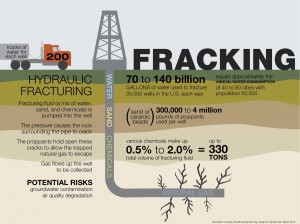.
.
From the Republican & Herald Newspaper, Pottsville, PA, on April 29, 2023
.
.
Lawmakers were so eager to accommodate the natural gas industry nearly two decades ago that they opened the rich Marcellus Shale gas field without an adequate regulatory regime. Now, the state continues to play catch-up. It still does not require drillers to disclose all of the chemicals that they use to drill and hydraulically fracture gas wells, for example.
Now the U.S. Environmental Protection Agency has raised the question of long-term fracking-waste disposal, three years after a statewide grand jury identified major regulatory failures and recommended significant reforms to better inform and protect the public.
That grand jury was convened by Attorney General Josh Shapiro. It followed up its findings of criminal wrongdoing against two drillers with a report on which the Governor — the very same Josh Shapiro — and the Legislature now should act.
According to the EPA, the industry nationally produces about 1 trillion gallons of contaminated wastewater each year, about 2.6 billion gallons of which comes from deep wells in Pennsylvania.
To the industry’s credit, it reuses most of the wastewater. But according to the PA Department of Environmental Protection, the industry still permanently disposed about 234 million gallons of the wastewater in deep injection wells in 2022. The industry also holds about 90 million gallons above ground at any given time, pending its reuse.
Because Pennsylvania has just 12 deep disposal wells, drillers ship most of the contaminated water by truck to Ohio, which has more than 200 such wells.Those wells themselves are controversial, partly because earthquakes have been attributed to them, including in Ohio. A consultant for a PA-DEP advisory board recently told the agency that the state would need between 17 and 34 more injection wells to handle the current wastewater volume.
Democratic state Sen. Katie Muth of Montgomery County has introduced a bill to implement the grand jury’s recommendations, including full disclosure of fracking chemicals individually and in combination and labeling fracking waste as what it is rather than “residual waste” for transport purposes.
Because of its massive environmental and potential health impacts, all aspects of drilling and fracking should be an open book. Gov. Shapiro should push for reforms and the Legislature should adopt them.
=====================================
SEE ALSO: Hydraulic Fracturing & Health, National Institute of Environmental Health Sciences (NIEHS), November 15, 2022
=====================================
SEE ALSO: List of additives used for fracking – Wikipedia
In the United States, about 750 compounds have been listed as additives for hydraulic fracturing, also known as ingredients of pressurized fracking fluid, in an industry report to the US Congress in 2011 after originally being kept secret for “commercial reasons”. The following is a partial list of the chemical constituents in additives that are used or have been used in fracturing operations, as based on the report of the New York State Department of Environmental Conservation, some are known to be carcinogenic.

